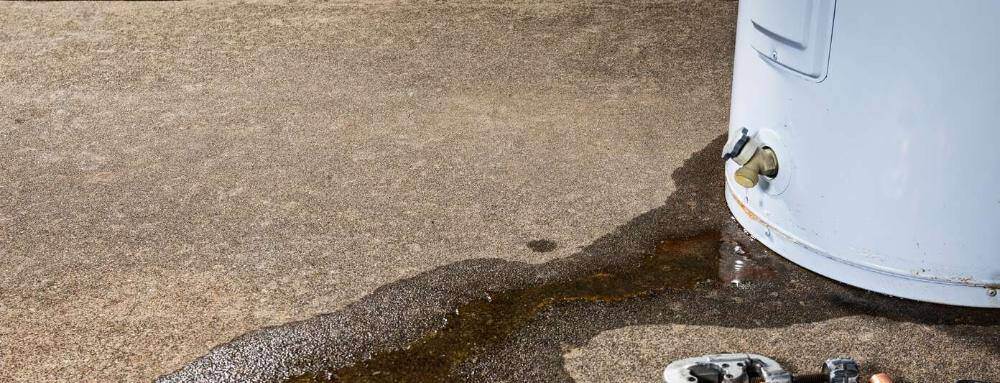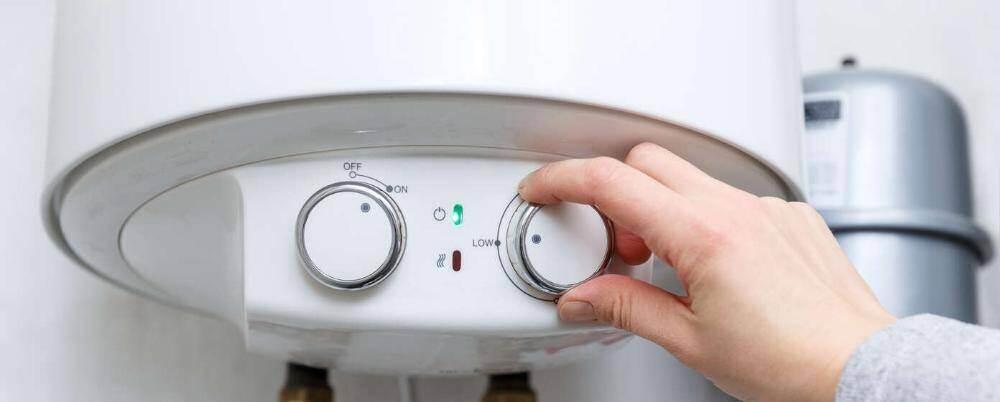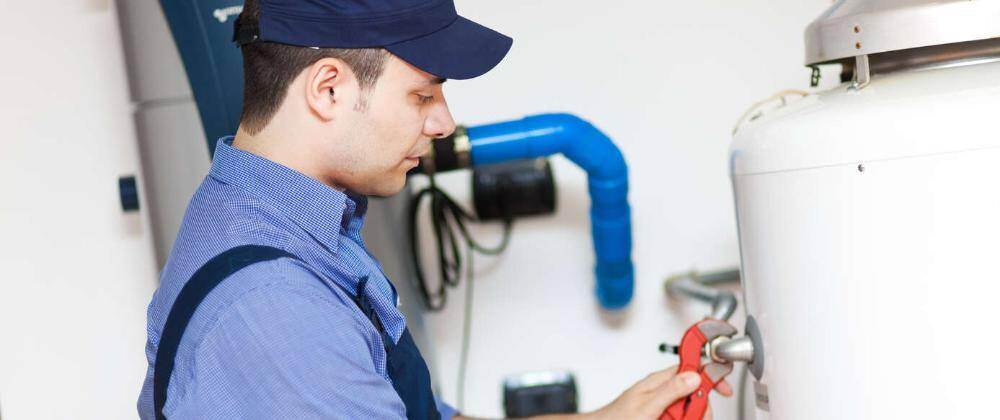Water Heater Warranty: Types, Differences, and Coverage Explained

Key tips to remember
- Average life expectancy of storage water heaters is 10-15 years, and tankless models over 20 years, with replaceable parts that can extend their lifespan.
- Warranties can help protect against repair or replacement costs and vary in length and coverage, from 1 to 15 years, depending on the brand and model.
- Different warranty types include manufacturer warranties, typically covering up to 5 years for various issues, and extended warranties for additional coverage.
- The warranty claim process involves initiating a claim, assignment of a provider, contacting the provider, troubleshooting, technician visits, and a service fee.
Do you agree that few things are more relaxing than a hot shower after a long day? If so, you understand the importance of a functioning water heater in your home. In addition to providing you with an essential part of your shower experience, water heaters can offer other benefits that might interest you. For instance, a water heater can help you save money by consuming less energy, being environmentally friendly, and reducing air pollution. However, much like most appliances and systems in your home, water heaters have a lifespan and can eventually fail you. Luckily, there are steps you can take to help protect yourself from unexpected expenses when this happens.
What would you say if you had to guess how long water heaters last?
According to Energy.gov, storage water heaters have an average life expectancy of 10–15 years. On the other hand, most tankless water heaters are expected to last more than 20 years and have easily replaceable parts that may extend their life even more.
However, although different types of water heaters can last for over a decade, it doesn't mean they won't have issues and need repair. After all, this is true for most of the appliances in your home. This is where a water heater warranty comes into play.

Understanding the basics of water heater warranties
What exactly is covered under a water heater warranty?
When it comes to water heater warranties, it’s important to note that not all coverage is created equally. Simply put; the details of your coverage will depend on the type of warranty you choose. Here are three distinct options for you to consider:
Manufacturer warranty
There's one catch with this kind of water heater warranty. For it to be valid, you may have to get your water heater installed by a licensed plumber. Typically, a manufacturer's warranty will last on average up to 5 years and cover any wear and tear issues. Some issues that may be covered include tank leaks or failure, malfunctioning heating elements, thermostat issues, and problems with the pressure relief valves.
It’s important to note that different brands have different rules when it comes to the scope of the warranty they offer and the details (length of warranty, coverage, etc). See more information about the most popular water heater brands sold in the US and their warranty below:
| Brand | Warranty Length | Coverage Details | Source Link |
| Kenmore | Kenmore offers a 10 years full warranty on parts and labor for all water softening and hybrid systems. | Parts and labor | Source |
| Navien | 15 year limited warranty on heat exchangers, 5 year limited warranty on parts, and 1 year limited-labor warranty that covers defects in materials or workmanship | Heat exchanger and parts and labor | Source |
| Noritz | 12 years replacement on the heat exchanger, 5 years replacement of defective parts and 1 year approved reasonable labor | Reduced to 5 years for commercial use | Source |
| Stiebel Eltron | 7 year warranty against leaks and a 3 year warranty on parts through the manufacturer | Leaks and parts | Source |
| Reliance | 3 to 12 years, depending on type | Includes 1 year of parts labor, tankless heater parts covered for 5 years | Source |
| Rheem | 6 years on parts, one year on labor and up to 15 years on a heat exchanger | Warranties can vary based on model purchased | Source |
| General | Depends on model purchased | Warranty coverage can vary and its best to confirm with manufacturer | Source |
Extended warranty
Although it depends on the company you buy your water heater from, many brands offer an extended warranty option. This usually kicks in when the manufacturer's warranty expires and can provide added peace of mind for you and your family.
Home warranty*
Meant to cover everything from A/C systems to small appliances like microwaves; a home warranty plan can also cover water heaters depending on your chosen coverage. While some might assume that home warranty protection is only needed for HVAC and considerable systems in the home, with a company like Cinch Home Services, you can get the coverage that makes sense for your water heater and anything else you see fit. While you should always do your own maintenance efforts to keep your water heater running in tip-top shape, with a Complete Home plan from Cinch, when a covered failure occurs you can get your water heater repaired.
Related Article: Do I Need a Home Warranty
*The product being offered is a service contract and is separate and distinct from any product or service warranty which may be provided by the home builder or manufacturer.
How do water heater warranties work?
When you have water heater warranty coverage, you’ll be responsible for filing a claim if your water heater stops working to determine whether it needs to be repaired or replaced. To explain how this works, here’s a simple 4-step process that should help:
- Contact your warranty provider: Regardless of whether you do this by phone, email or submit a complaint via an app, you should contact your warranty company as soon as your water heater starts malfunctioning.
- Follow instructions: Next, the warranty company will guide you through a troubleshooting process (usually over the phone) to determine what’s wrong with your water heater. You’ll move on to the next step if no solution can be found.
- In-person help: Next, you’ll schedule time with the warranty company for a certified technician to visit your home and diagnose what’s wrong with your water heater. Note that you’ll be responsible for paying a service fee of around $75. However, this varies based on the details of your contract.
- Be patient: While filing a claim may take a few minutes, getting your water heater back up and running could take days. Make sure you pay the service fee ASAP so your service (warranty payout) isn’t delayed.
What else you should know about your warranty

How do I know if my water heater is still under warranty?
If you recently purchased a home and want to find out if your water heater is under warranty, look for a serial number and contact technical support for the brand online or via phone. This is a simple tip to save you time.
Not all claims will be accepted – here's why
However, just because you have a water heater warranty doesn't mean your claim will automatically be approved when you file one. Here are some of the reasons why your water heater warranty may be denied:
- If you attempted a DIY installation instead of hiring a licensed plumber.
- If flooding occurs, it can undoubtedly affect your warranty as well. This is one of the reasons why your water heater should be on a water heater stand instead of on the floor.
- Suppose you gift the water heater to a friend or buy a home with an old water heater. Some warranty plans don't allow transfer of ownership.
- When no maintenance takes place for years, it could impact coverage.

Maintenance can save you time and money regardless of warranty
While there are many different types of water heaters for you to choose from, it is essential that you do your part to keep yours running properly for as long as you can. Some standard options include conventional storage water heaters, tankless heat pumps, solar water heaters, and tankless coil water heaters.
Let’s review some easy maintenance tips that you can use to reduce costs regarding your water heater.
According to a guide from Today's Homeowner, flushing your water heater is at the top of the list to remove sediment and improve efficiency. Testing the temperature of your pressure relief valve is another smart tip to help you avoid dangerously high water pressure in your tank. Next, don't forget to adjust the water temperature. The same guide suggests, "Most homeowners prefer a temperature setting of 140 degrees Fahrenheit but turning yours down to 120 to 130 degrees can reduce energy consumption and wear and tear on the water heater." For more maintenance tips and instructions, click here.
We hope you feel confident now that you know the ins and outs of water heater warranty and maintenance. Remember, with Cinch, home warranty protection is an excellent way to protect the systems and appliances in your home and avoid unexpected expenses. When the things you rely on stop working, you'll have a network of licensed professionals to fix it. Learn more here.



